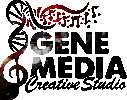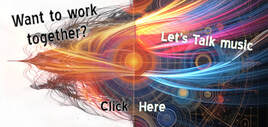|
This entry was inspired by a conversation about the subconscious mind, self-sabotoge and how it relates to societal systems. A quick disclaimer, I certainly don't have all the answers about that specific connection at that scale, but it's interesting to consider, do we build our own personal flaws into our macro-systems? I thought it might be useful to explore the nature of limiting beliefs as they do strike at the root of most of life's "challenges"... I believe It's common for creatives to experience this, since I often read artists talking about mental-health and depression. Please be prepared for a long and information-dense article. Apologies if it's not exactly bite-sized or easily digestible. Be welcome to discuss the ideas - Cody Gene Exploring Limiting beliefsLet's explore some ideas around "what holds us back" where it relates to our pursuits as creatives. for example, let's say you're a recording artist and your mix has some issues leaving you telling yourself 'i suck, i'll never be good enough.' It's likely not a matter of the quality of your gear, which DAW, or which plugins you're using, a common misconception - 'if i just upgrade this or that, then i'll be better at ____ - but let's dig deeper, what's at the root to prevents success?
Let's talk about limiting beliefs. We can address limiting beliefs through the shifting of mindset, sounds simple right? Easy in-Principle but Difficult in-Practice. How can one unlock his/her full potential? How does one overcome obstacles, to pursue dreams with confidence, with resilience, with passion? Results dont happen immediately but the development of this internal-skill through the training of ones mind can be key to breaking free of negative cycles and achieving better results faster. Creativity, at it's core, drives the ability to think outside the box. another word that comes to mind is innovation, or the ability to come up with original ideas, and to execute them in novel and engaging ways. Creative thinking enables artists and promoters to break free from traditional approaches and experiment with new methods of connecting with audiences. This articl explores ideas around innovation and creativity in the context of promotion strategies to become more engaging and appealing to your target audience Let's explore the idea of authenticity. Now this idea is very context-dependent. I might imagine a sliding scale between authenticity and mystique. on one-hand is genuine self expression, and on the other-hand is a fantasy-world-building aspect. at any point along this spectrum where your art fits, the concept of authenticity can be utilized to establish genuine connections with an audience. Who is your audience? well, That's a topic for another article. Authenticity involves staying true to the identity you're creating. Consider values, and artistic vision, and thematic elements if you're lean towards 'mystique', and characteristics of your personality, likes, and interests if you lean towards 'self-expression'. It's a 'you do you' type of situation here, nobody can tell you you're wrong, but if the concept is integrated into your promotion strategies, it can create a more cohesive experience while allowing you to express yourself in a way that feels authentic and natural. You might find that you and your fans start to resonate on a deeper level and build trust faster and maintain loyalty over time. Effective promotion focuses on connecting with a new audience in meaningful ways, and strengthening the relationship with an existing audience. This involves understanding the desires, interests, and preferences of the target audience and creating experiences that resonate with them. Before you do that, it'd be advised to do some soul-searching. Remember we're talking authentic self-expression here. If it feels unnatural or like you're faking it, pretending to be something you're not, your audience will pick up on it, don't ask me how but they will. You'll know when you start to have that genuine connection with your audience because it will start to feel effortless. Innovation, when related to progress and differentiation means thinking creatively and finding unique ways to stand out from the crowd. Some examples might include an artist who builds a fantasy world by combining unique imagery and thematic elements, or a songwriter who authentically expresses their genuine self in everything they do. In current year, innovation might be heavily tied to technology, artists and promoters can stay ahead of the curve by adapt to changing trends and technologies, and explore new creative ways for reaching and engaging with audiences. Be open to experimentation, take calculated risks, and continuously seek new and creative solutions but remember, it WILL feel right if it's the right approach for you, don't stick with something just to grind through it if you try and it doesn't inspire you. When it's right it will feel natural, effortless, motivating, and exciting. The music industry is ever-evolving, and successful approaches are mindful to be adaptable to changing circumstances. Being adaptable means staying flexible. It's the idea of trying new things, keeping what works, and discarding what doesn't work. To do this, the word responsive comes to mind. Do you have any metrics that you track to tell if something is working? it could be streaming analytics, follower count on a given social media network, email subscribers, responses, comments... any number of things. Adaptability, in the tech/business world might be called being 'agile'. in the face of unexpected challenges or opportunities, adjust strategies, tactics, and messages to meet the evolving needs of your life-situation and the preferences of your audience. A value-Proposition in effective promotion communicates a clear and compelling ask to the audience. Some people feel this is too direct, but it is important. If you have something to give, how are your people going to know it exists if you don't a: tell them it's there, and b: ask them to take a look. Articulate what makes your product, valuable and worth investing time, attention, and resources into and the reasons why can be useful. Remember the idea of authenticity from before? It's important that authenticity comes first. If you've been building a genuine connection, the reasons for your audience to support your value-proposition may not be the product in itself, but instead as a means to show support for you based on the genuine connection itself, which was built on authentic self-expression. it's a circular thing. A strong value proposition resonates with the audience's needs and desires, addresses pain points, and offers tangible benefits or rewards for participating, but these are topics for another day... Collaboration and community can play important roles in authentic self-expression. It can show a side of you that might not be otherwise expressed on your own. How you interact with others, how your influence affects the direction of a song, etc. Building partnerships with other artists, brands, influencers, or organizations can extend reach, amplify messages, and create mutually beneficial opportunities for promotion. Seek collaborations with others in a way that creates a win-win. What do you bring that others need, and what can others bring that you need? Emphasise that and seek harmony while carrying out the project together. Similarly, fostering a sense of community among fans can strengthen loyalty, advocacy, and support for the music and the artist. it works the same way, lets say for example you have a community channel or engage with your fans on social media. How can collaboration with your fans create a win-win? in this hypothetical, you might have a question about a direction you want to move with regards to your content as you shift from one batch of songs into the next. So you post a few samples to test the waters, you ask them if they like this direction for the next project and you reply to their comments to ask what they would like to see? Your audience, since you've built a genuine authentic connection, are happy to give you feedback and tell you that it works or that it doesn't work, giving you the feedback you need so you can continue giving them an experience that they can be excited about. In summary, these principles of originality, authenticity, and self-expression can open up doors to effective strategies that can better help resonate with audiences, drive engagement, and ultimately contribute to the success and longevity of a music career. written by Cody Gene: an independent record producer, helping artists connect the dots and navigate the music industry....
How does one Practice Wholeness in a world divided? What does it mean to be a "whole" self, of healthy mind and capable of making healthy decisions? As children in the developmental stages of life, the world is a place full of new things to discover, and as the child may seek to discover the nature of this world, seeks to become a part of it, one might note the abundance of questions asked by the child. Questions like why. As the child grows into 'adulthood' however, the inquisitive nature of life is forgotten. Why?
------------- “Education is what remains after one has forgotten everything he learned in school. It is a miracle that curiosity survives formal education. ” ― Albert Einstein What do you think when you hear about the creative cafe?I know we're not all marketers, but there's something to be said for presenting something thats cohesive. I see the whole event/community here as an exploration of creative lifestyle. a mini creative lifestyle blogosphere if you will, only each month we host an event. On the presentation side, I'm less concerned about 'branding' and care more about 'culture'. I see it almost like a 'brand of me' kind of thing, except instead of it being 'me' its instead a group of like minded people, together, accomplishing something very cool.
content what is it? Content is the stuff we post about in relation to the event. what is content used for? Content is used to connect with our audience and each other, to attract people in and build relationships so that people can get to know us and what we're all about here... So here's the challenge... Come up with 3 categories into which you can plan your content. for example, these are my 3 main areas of focus when it comes to creating content: 1- Music Mindset & Methodology 2- Songwriting 3- recording + production Diving deeper After you've got three niche areas, start thinking of some subcategories within that, these might mean individual post topics, pictures, or videos. 1- Music Mindset & Methodology
Capturing ideas on the fly... hope you have a pen and paper
Remember that great idea you had while you were out on the town? Neither did I until I started carrying around a notebook for scratching down ideas. Start collecting and stockpiling these ideas and before you know it, you'll have a deep pool of resources to draw from next time you sit down to focus on creating some new content, and the beauty part is, you'll never have to worry about running out of ideas again...  What's the Point? To me, there is no single quick fix, no magic silver bullet to get you from where you are to where you want to go. I can't promise that this is your one-way ticket to instant fame and fortune. Success is driven by the desire and a willingness to never give up. while seeking challenges as opportunities and striving to overcome them. I believe that a group of committed individuals working together can aim higher and achieve more. That's why I'm doing this... Hey welcome, today we're going up. Taking a look at the landscape from above. The view from 24,000 feet. What does this have to do with music Cody? Let me tell you... This is the big picture and how to see it. If you're serious about your music as a career, as a profession, then you might want to consider the overall picture of where you are, where you want to go and how to get there. This is called planning. "No $%^T Cody, I already know what planning is. " Do you really? well why then are you living day to day, paycheck to paycheck, with some nebulous dream of being a rockstar and no actual strategy for how you're going to accomplish that? With that little voice inside your head telling you that it's not possible, that you should go and get a 'real job'. It's time for a manifestation check my friend. Let's Zoom out - Looking at all aspects - 24000 - 12000 - 1000 - 100 - 10 - 1 Imagine for a second your goal, with you zooming out. Out from where you stand/sit. up to a view of your life from above. Start at the top - 24,000 feet up for today's example. This is where you see everything. what your vision looks like when it's done. Be as detailed as you can. This is called Casting your vision. 24,000 feet represents the long-term. could be 10 years, 25 years down the road from now, you decide, and ask yourself what your life looks like from that persepective. Next, we'll drop down to 12,000 feet. Here, we'll be looking at the halfway mark. What have you accomplished during that time-frame? what might your challenges look like? What obstacles have you overcome? Try to put yourself in the perspective of yourself x ammount of time in the future. We'll repeat the process again and again from these different elevations. You get the idea right? As we get lower and lower to ground level, we can start getting more and more specific about what's next, and more importantly, whats most important right now towards accomplishing our desires. Gauging the scope and time frame It's pretty much whatever works for you. The important thing is that you understand the big picture and what it means to you in relation to your vision. Everyone thinks a little bit differently. We all have our own processes that we have to go through, but as we gain clarity about the big picture, we become more adept at adapting to the specific details about what to do next in order to get there. Things Like how far ahead you're looking (your elevation) and what you're looking at can have a big impact on the path you walk at ground level. A few considerations In Your personal Life
In Your professional life
Next actions + how to get there If you're looking at each moment, and seeing the view from 1' all the time, simply living day to day or moment to moment, without considering your destination, or the implications of your actions, what kind of things might be out there to disrupt you? How will you spot them? If you're here, you might feel trapped. How many artists have I met who once had a dream, but failed to plan how to actually get there, and are now stuck in a job they hate because they listened to their mother-in-law and quit too soon - or continued laying blue-collar butt rock in a one horse town instead of making new connections and expanding their horizons. I sincerely hope this is not your tragectory. I'm grateful to you for taking the time in reading this article. I hope it helps you draw some insight. I'm not saying this is the only way, or a be-all-end-all approach for guaranteed success. Success is a mindset. It starts with what you believe, but once you do believe (in yourself and that your goals are possible) You will start discover that your overall vision is actually quite attainable, and in that, start to anticipate obstacles that may stand in the way. want to work together?If you read this article to the end and have questions, I'd like to invite you to reach out via the comments below, or feel free to send me an email via the contact form
|
Gene Media ProductionsCody Gene: Record Producer Music Methodology & Creative Lifestyle
#
All
Archives
June 2024
|
Categories
|
AboutGene Media Creative Studio is the Production Facility of Indie-Rock producer and songwriter Cody Gene.
|

Gene Media Creative Studio is located in British Columbia, Canada and creative Cody's creative space. here he explores ideas, creative vision, and technical aspects of independent music production + artist development.
|
Contact |






 RSS Feed
RSS Feed